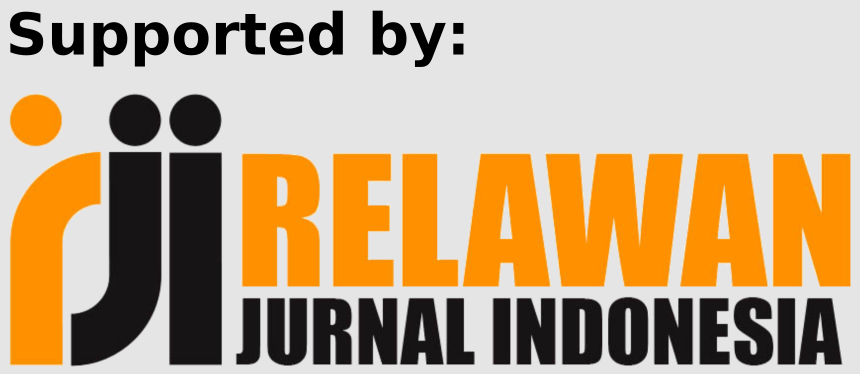The Influence of MEDULA (Education Media for Snakes and Ladders) on Adolescent Knowledge Levels on Reproductive Health
DOI:
https://doi.org/10.31101/jhtam.1933Abstract views 1265 times
Keywords:
Adolescent, Ladder snake, ReproductionAbstract
Downloads
References
Population Census Results. (2020). Central Bureau of Statistics Indonesia (2020 Popul).
Alfiasari, & Oktriyanto. (2019). Dating and Premarital Sexual Inisiation on Adolescence in Indonesia. Journal of Education and Practice, 15(1).
Ambrose, M. (17 C.E.). Learning global health: a pilot study of an online collaborative intercultural peer group activity involving medical students in Australia and Indonesia. BMC Medical Education. In 2017 (Vol. 1, pp. 1–11).
Annamalai, N., Manivel, R., & Palanisamy, R. (2015). Small group discussion : Students perspectives. 18–20. https://doi.org/10.4103/2229-516X.162257
Ayele, M. W., & Amare, M. (2020). Determinants of Dental Caries among Preschool Children in Dessie Town, 2019: A Case-Control Study. International Journal of Oral and Dental Health, 1(1). doi: 10.23937/2469-5734/1510118
Berg, V. van den, Saliasi, E., Renate, M., M. J., Chinapaw, & Amika. (2019). Improving Cognitive Performance of 9–12 Years Old Children: Just Dance? A Randomized Controlled Trial. 1(1). https://doi.org/10.3389/fpsyg.2019.00174
Dlab, Hoić-Božić, Mezak, & Žuni. (2020). Supporting Croatian Primary School Teachers in Designing Game Based Learning Activities: A Case Study. 2020(9), 125–133.
Fan, K., & Xiao, P. (2015). The Effects of Learning Styles and Meaningful Learning on the Learning Achievement of Gamification Health Education Curriculum. Eurasia Journal of Mathematics, Science & Technology Education. 11(5), 1211–1229.
Farre, A. G., Pinheiro, P., & Vieira, N. (71 C.E.). Adolescent health promotion based on community-centered arts education. Revista Brasileira de Enfermagem,. 1, 26–33.
Haruna, H., Hu, X., & Chu. (2018). Improving Sexual Health Education Programs for Adolescent Students through Game-Based Learning and Gamification. Int J Environ Res Public Health, 15(9), 2027–2053.
Haruna, H., Zainuddin, Mellecker, Chu, & Hu. (2019). An iterative process for developing digital gamified sexual health education for adolescent students in low-tech settings. Information and Learning Sciences, 120, 723–742.
MartÃn-GarcÃa, López-MartÃn, & Arguedas-Sanz. (2020). Collaborative Learning Communities for Sustainable Employment through Visual Tools. Sustainability. 12(6), 2569–2589.
Morales-MartÃnez, F. A., Salas-Castro, C., GarcÃa-Garza, M. R., Valdés-MartÃnez, O., & Selene Marysol GarcÃa-Luna. (2021). Evaluation of the Ovarian Reserve in Women With Systemic Lupus Erythematosus. The Journal of Family & Reproductive Health, 1(1).
Nachiappan. (2017). Snake and Ladder Games in Cognition Development on Students with Learning Difficulties. Review of Arts and Humanities. 3(2), 217–229.
Nyumba. (2018). The use of focus group discussion methodology: Insights from two decades of application in conservation. Methods in Ecology and Evolution, 9(9), 20–32.
Oliveira, D., Gessner, de Souza, V., & Fonseca. (2016). Limits and possibilities of an online game for building adolescents’ knowledge of sexuality. Ciência & Saúde Coletiva. 21(8), 2383–2392.
Prayuni, E. D., Imandiri, A., & Adianti2, M. (2018). Therapy For Irregular Menstruation With Acupunture And Herbal Pegagan. Journal of Vocational Health Studies, 2, 86–91.
Raiyn. (2017). The Role of Visual Learning in Improving Students’ High-Order Thinking Skills. Journal of Education and Practice, 7(24), 115–121.
Shaluhiyah. (2017). Socio-Cultural And Socio-Sexual Factors Influence The Premarital Sexual Behaviour of Javanese Youth In The Era of HIV/AIDS. 2(2), 61–72.
Sirani, N. (2016). Effective Teaching Methods in Higher Education: Requirements and Barriers. US National Library of Medicine National Institutes of Health, 4(4), 170–179.
Sites, R. (2016). Leaving ADDIE for SAM: An Agile Model for Developing the Best Learning Experiences.
Suratno. (2020). Development of Augmented Reality in Biotechnology processes as a Supporting Media for Science Learning Modules in Elementary Schools. 1(1). http://biologi.fkip.unej.ac.id/jurnal-internasional-scopus/
Widyaningsih, Wahyu, S., & Irfan. (2018). Efforts to Improve Learning Outcomes by Using Simple Teaching Media Through Lesson Study Activities on General Physics Courses. 7(2). doi:10.23887/jpi-undiksha.v7i2.12974
Wong. (2017). Qualitative Inquiry into Premarital Sexual Behaviours and Contraceptive Use among Multiethnic Young Women: Implications for Education and Future Research. 7(12), 1–10.
Downloads
Published
How to Cite
Issue
Section
License
Authors who publish with Journal of Health Technology Assessment in Midwifery agree to the following terms:
- Authors retain copyright and grant the journal right of first publication with the work simultaneously licensed under a Creative Commons Attribution License (CC BY-SA 4.0) that allows others to share the work with an acknowledgment of the work's authorship and initial publication in this journal.
- Authors are able to enter into separate, additional contractual arrangements for the non-exclusive distribution of the journal's published version of the work (e.g., post it to an institutional repository or publish it in a book), with an acknowledgment of its initial publication in this journal.
- Authors are permitted and encouraged to post their work online (e.g., in institutional repositories or on their website) prior to and during the submission process, as it can lead to productive exchanges, as well as earlier and greater citation of published work.

Journal of Health Technology Assessment in Midwifery is licensed under a Creative Commons Attribution-ShareAlike 4.0 International License..













